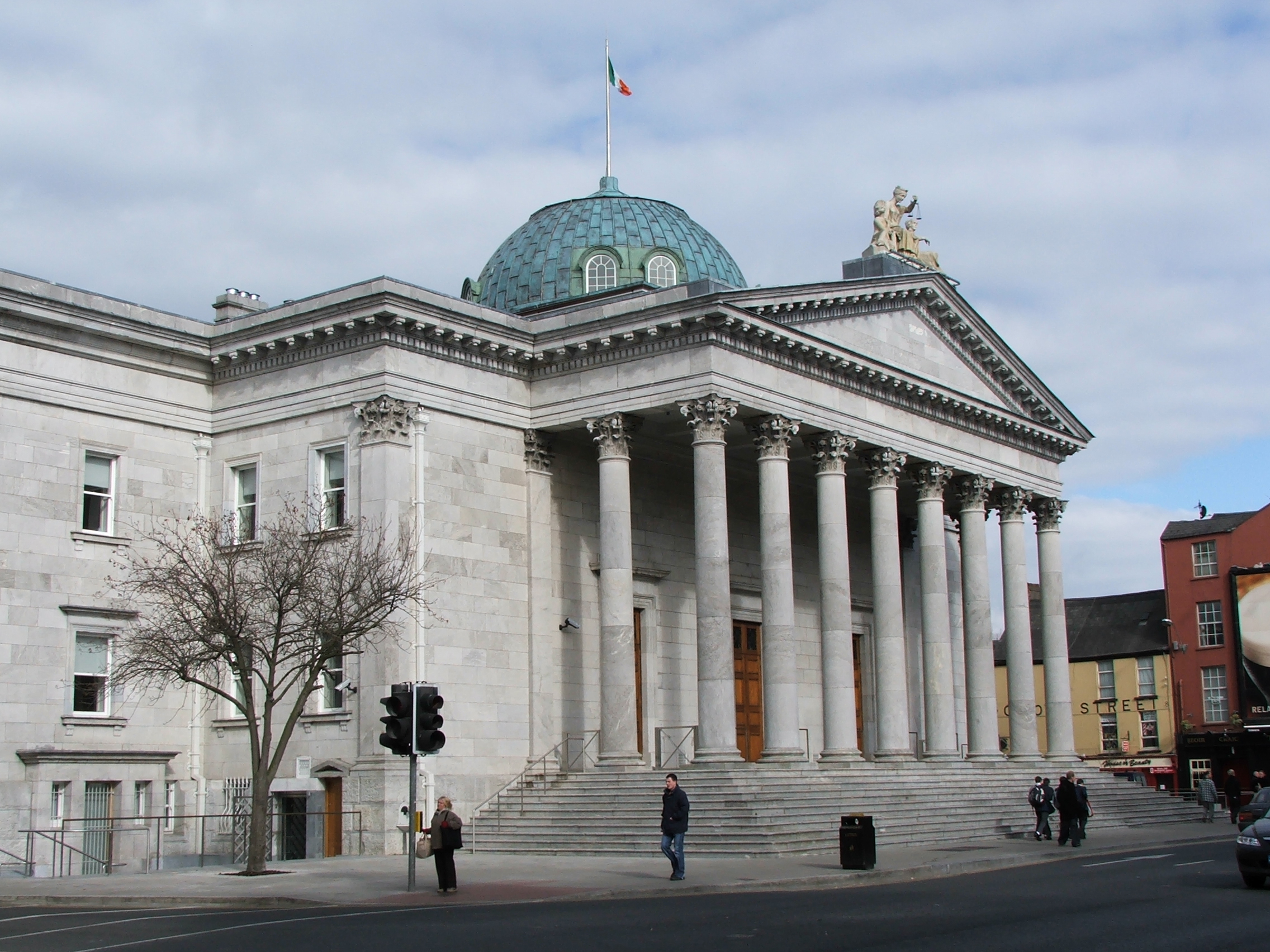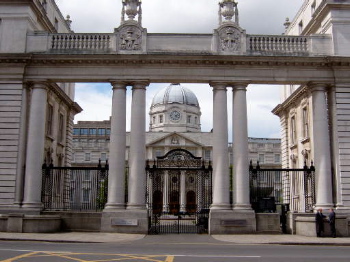|
County Registrar
A county registrar () is an official attached to the Irish Circuit Court who carries out a number of quasi-judicial and administrative functions regarding the functioning of the court within their assigned county or counties. The county registrar has responsibility for the administration and management of the circuit court offices in each county. These quasi-judicial functions of a county registrar in the Circuit Court are similar to those of the Master of the High Court in the High Court. Other roles Except in Dublin and Cork, the county registrar is also the sheriff and responsible for the enforcement of court orders and acts as returning officer for all referendums and elections. Appointment County registrars are appointed by the government A government is the system or group of people governing an organized community, generally a State (polity), state. In the case of its broad associative definition, government normally consists of legislature, executive (gove ... [...More Info...] [...Related Items...] OR: [Wikipedia] [Google] [Baidu] |
Circuit Court (Ireland)
The Circuit Court () of Ireland is an intermediate level court of local and limited jurisdiction which hears both civil and criminal matters. On the criminal side the Circuit Court hears criminal matters tried on indictment with a judge and jury, except for certain serious crimes which are tried in either the Central Criminal Court or the Special Criminal Court. On the civil side the Circuit Court has a considerable parallel jurisdiction — including equitable remedies — with the High Court but normally cannot award damages of more than €75,000. The Circuit Court also hears '' de novo'' appeals from the District Court in both civil and criminal matters. The Circuit Court consists of a President and thirty-seven ordinary judges and six specialist judges. It is composed of eight circuits, each of which cover an ''ad hoc'' region of the state. One judge is assigned to each circuit except in Dublin where ten judges may be assigned, and Cork, where there is provision for three ... [...More Info...] [...Related Items...] OR: [Wikipedia] [Google] [Baidu] |
Registrar (law)
The registrar is a chief executive officer of a judicial forum. They are in charge of the entire registry of the department. In common law jurisdictions, registrars are usually judicial officers with the power to hear certain civil matters such as interlocutory applications and assessment of damages. In some jurisdictions, they may also hear trials of cases if both parties consent. Registrars are assisted by deputy-registrars, who in common law Common law (also known as judicial precedent, judge-made law, or case law) is the body of law primarily developed through judicial decisions rather than statutes. Although common law may incorporate certain statutes, it is largely based on prece ... jurisdictions are sometimes called masters. The registrar is the chief administrator of the department, normally they happen to be the head of the department. The posts of the registrar are generally created in a judicial forums such as tribunals, high courts and supreme courts and in educ ... [...More Info...] [...Related Items...] OR: [Wikipedia] [Google] [Baidu] |
High Court (Ireland)
The High Court () of Ireland is a court which deals at first instance with the most serious and important civil and criminal cases. When sitting as a criminal court it is called the Central Criminal Court and sits with judge and jury. It also acts as a court of appeal for civil cases in the Circuit Court. It also has the power to determine whether or not a law is constitutional, and of judicial review over acts of the government and other public bodies. Structure The High Court is established by Article 34 of the Constitution of Ireland, which grants the court "full original jurisdiction in and power to determine all matters and questions whether of law or fact, civil or criminal", as well as the ability to determine "the validity of any law having regard to the provisions of this Constitution". Judges are appointed by the President, as Article 35 dictates. However, as with almost all the President's constitutional powers, these appointments are made on "the advice of the ... [...More Info...] [...Related Items...] OR: [Wikipedia] [Google] [Baidu] |
Sheriff
A sheriff is a government official, with varying duties, existing in some countries with historical ties to England where the office originated. There is an analogous, although independently developed, office in Iceland, the , which is commonly translated to English as ''sheriff''. Description In British English, the political or legal office of a sheriff, term of office of a sheriff, or jurisdiction of a sheriff, is called a shrievalty in England and Wales, and a sheriffdom in Scotland. In modern times, the specific combination of legal, political and ceremonial duties of a sheriff varies greatly from country to country. * In England, Northern Ireland, or Wales, a sheriff (or high sheriff) is a ceremonial county or city official. * In Scotland, sheriffs are judges. * In the Republic of Ireland, in some counties and in the cities of Dublin and Cork, sheriffs are legal officials similar to bailiffs. * In the United States The United States of America (USA), ... [...More Info...] [...Related Items...] OR: [Wikipedia] [Google] [Baidu] |
Government Of Ireland
The Government of Ireland () is the executive (government), executive authority of Republic of Ireland, Ireland, headed by the , the head of government. The government – also known as the cabinet (government), cabinet – is composed of Minister (government), ministers, each of whom must be a member of the , which consists of and . Ministers are usually assigned a Department of State (Ireland), government department with a wikt:portfolio, portfolio covering specific government policy, policy areas although provision exists for the appointment of a minister without portfolio (Ireland), minister without portfolio. The taoiseach must be Dáil vote for Taoiseach, nominated by the Dáil, the House of Representatives, from among its members. Following the nomination of the , the president of Ireland formally appoints the . The president also appoints members of the government on the nomination of the and their approval by the . The taoiseach nominates one member of the government ... [...More Info...] [...Related Items...] OR: [Wikipedia] [Google] [Baidu] |
Law Of The Republic Of Ireland
The law of Ireland consists of constitutional, statutory, and common law. The highest law in the State is the Constitution of Ireland, from which all other law derives its authority. The Republic has a common-law legal system with a written constitution that provides for a parliamentary democracy based on the British parliamentary system, albeit with a popularly elected president, a separation of powers, a developed system of constitutional rights and judicial review of primary legislation. History of Irish law The sources of law in both the Republic of Ireland and Northern Ireland reflect Irish history and the various parliaments whose law affected the island of Ireland down through the ages. The Brehon Laws The Brehon Laws were a relatively sophisticated early Irish legal system, the practice of which was only finally wiped out during the Cromwellian conquest of Ireland (ending in 1653). The Brehon laws were a civil legal system only – there was no criminal law. Acts t ... [...More Info...] [...Related Items...] OR: [Wikipedia] [Google] [Baidu] |



